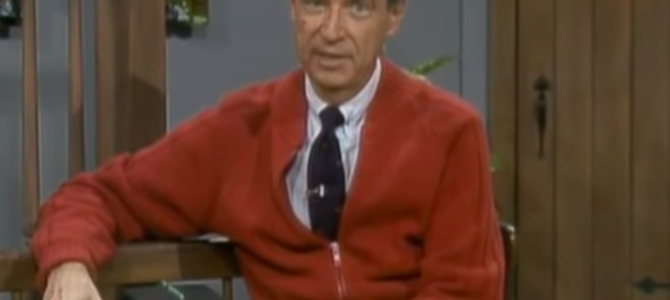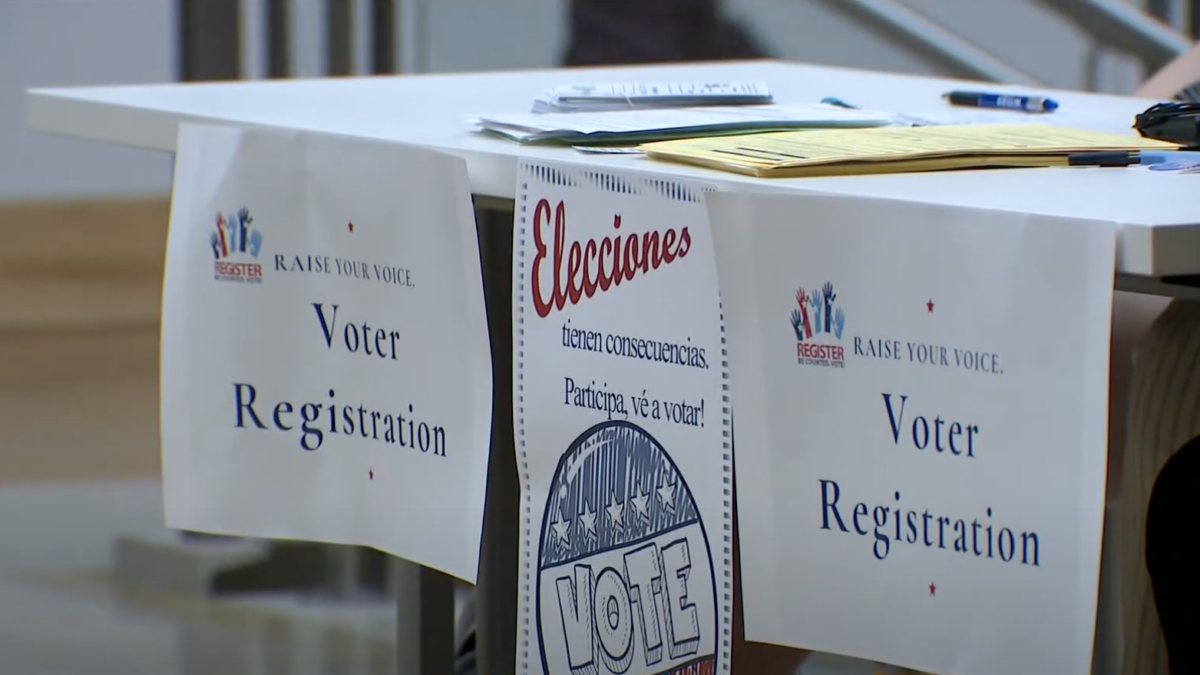
Whenever my grandfather wanted to get a rise out of my younger sister and me, he would call Mr. Rogers a “fruitcake.” The remark would send us shrieking into a full-throated defense of the gentle television host we adored and whose show we never missed.
“Mister Rogers’ Neighborhood” premiered 50 years ago, and the country is wistfully celebrating the legacy of its creator and star, Fred Rogers. As someone who grew up watching him, I admit that I have a lump in my throat reviewing his old programs and interviews. Now, as the mother of two teenagers, I wish we could have him back to soothe our broken country with his kindness, wisdom and good cheer.
Many Americans probably feel the same way. Fred Rogers, who died in 2003, will be honored on a postage stamp in a ceremony later this month at the Pittsburgh studio where he filmed his iconic show. On March 6, PBS — the network that aired “Mister Rogers’ Neighborhood” for 33 years — will broadcast a celebrity tribute to this GenX hero: “Mister Rogers: It’s You I Like.” A documentary about Rogers’ career will hit theaters this summer and “America’s Dad” Tom Hanks, rightfully, is portraying Rogers in a film now in production.
If we ever needed a heavy dose of American nostalgia courtesy of a soft-spoken gentleman in a homemade sweater, it’s now. Our collective neighborhood is torn apart with no hope of a happy block-party in the near future. Our children are panicked, isolated, overstimulated, and props in adult political battles. Our political leaders are crass and brash; cable news hosts are loud and boorish. There is no quiet.
I think that’s what struck me the most while watching old “Neighborhood” episodes: The peacefulness of it. It was a simple set with comforting piano music, no synthesized pounding or phony audience laughter. At the start of each show, the camera would pan across a picture frame that had a different painting or message every time: In one episode, the message simply was, “Hi.”
Rogers’ tone was calm and reassuring. His greatest gift was the ability to talk or sing directly to the camera and seem as though he was only speaking to you, a talent lacking in most television hosts today. He spoke deliberately as if to give us the chance to fully absorb what he was saying, and the pace of the show was tranquil and unrushed, a sharp contrast to today’s frenzied media tempo.
This musician, puppeteer and Presbyterian minister first entered our living rooms in 1968, arguably the most tumultuous and consequential years in U.S. history, and he was the antidote to world on fire. Here’s a brief rundown by The Washington Post of what was happening that year: “The assassinations of the Rev. Martin Luther King Jr. and Robert F. Kennedy. The riots that shook Washington, Chicago, Baltimore and other U.S. cities. Campus protests. Civil rights protests. Vietnam War protests. The Tet Offensive. The My Lai massacre. The rise of Richard Nixon and the retreat of Lyndon Johnson.”
A few months after his show debuted, Rogers addressed Kennedy’s assassination on the air. “I’ve been terribly concerned about the graphic display of violence which the mass media has been showing recently and I plead for your protection and support of your young children. There is just so much that a very young child can take without it being overwhelming.”
How prescient that was.
For the next three decades, Rogers would comfort, encourage, entertain and educate children around the world. (And some parents, too.) He taught us about music and manners, and how to make homemade crafts using common household items like string and empty bottles. Many of us were introduced to children who were ill or disabled for the first time when they visited the show. (When Rogers was inducted into the Television Hall of Fame in 1999, Jeff Erlanger, the boy in a wheelchair who had appeared on his show, introduced him.)
He advised us how to deal with friends and family members, how to care for animals and the environment, and that it was okay to make mistakes. For the first generation of so-called latch-key kids who went home to an empty house after school, Mister Rogers was the parent who wasn’t physically there.
His show was almost cancelled shortly after it premiered. During congressional testimony in 1969, Rogers defended PBS’s budget (his show cost a whopping $6,000 to produce at the time) to lawmakers who wanted to cut funding to the network: “This is what I give. I give an expression of care every day to each child to help him realize that he is unique. I feel like if we in public television can only make it clear that feelings are mentionable and manageable, we will have done a great service for mental health. I’m constantly concerned with what our children are seeing.”
In response to Rogers’ testimony, the late Sen. John Pastore (D-R.I.) admitted he had “goosebumps” and told Rogers he “just earned the twenty million dollars.”
That exchange showed that Rogers’ sincerity could win over adults as easily as it won over children. While accepting a Lifetime Achievement Award at the Daytime Emmys in 1997, Rogers brought many of the celebrities in the audience to tears by asking them to take ten seconds to “think of the people who have helped you become who you are. Those who have cared about you and wanted what was best for you in life.” So, here was a man accepting an award who, instead of boasting about himself, asked the crowd of celebrities to think about someone they love. That kind of graciousness and humility is now gone from civil discourse.
At the end of each show, Rogers would sing “It’s Such a Good Feeling” and tell his viewers that “you make each day such as special day. You know how? By just your being you. There’s only one person in the whole world like you, and people can like you exactly as you are.” (I AM NOT CRYING I HAVE BAD ALLERGIES) He also valued life.
“Life isn’t cheap,” he said in his Hall of Fame speech. “It’s the greatest gift of any millennium. And television needs to do all it can to broadcast that.”
It’s not just America’s children who need Rogers right now; it’s the adults. As much as I wonder if troubled young people like the Florida school shooter might have benefitted from a daily dose of Mister Rogers, I also wonder if loudmouths like Donald Trump, Broward County Sheriff Scott Israel and basically everyone on cable news should be forced to binge-watch his show. Maybe we don’t just need to make America great again; maybe we need to make our neighborhood beautiful again.









